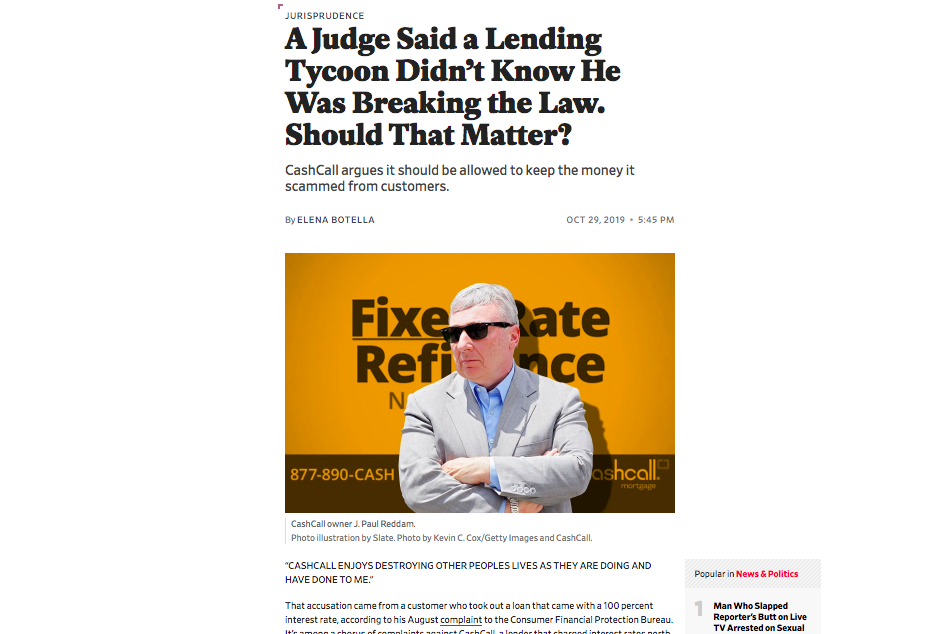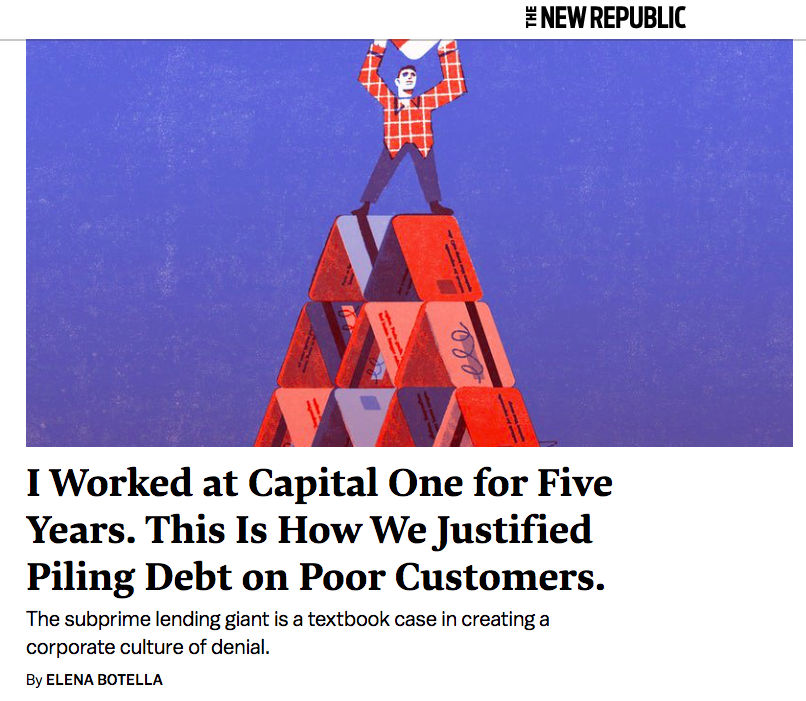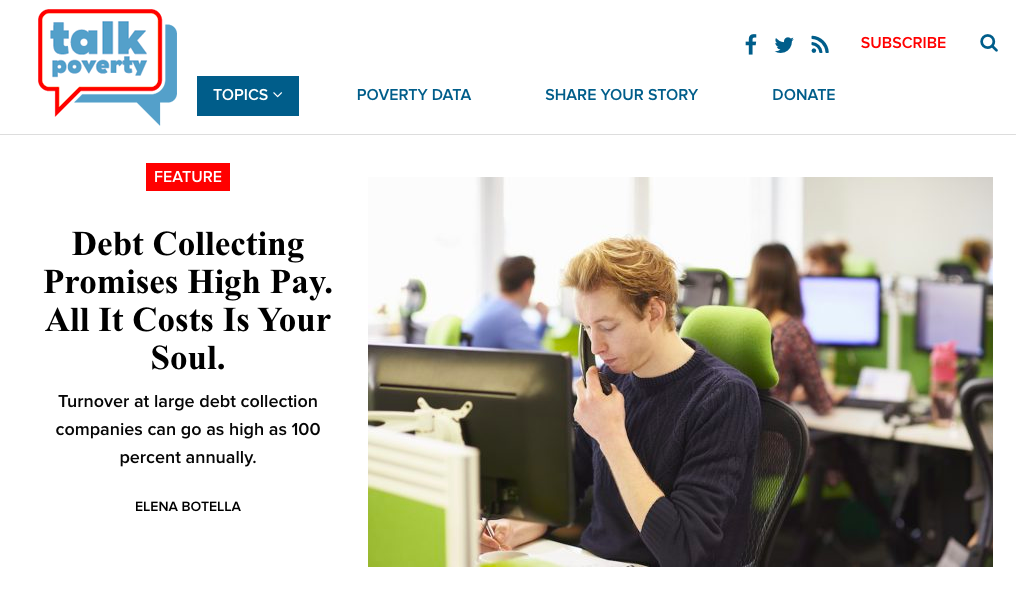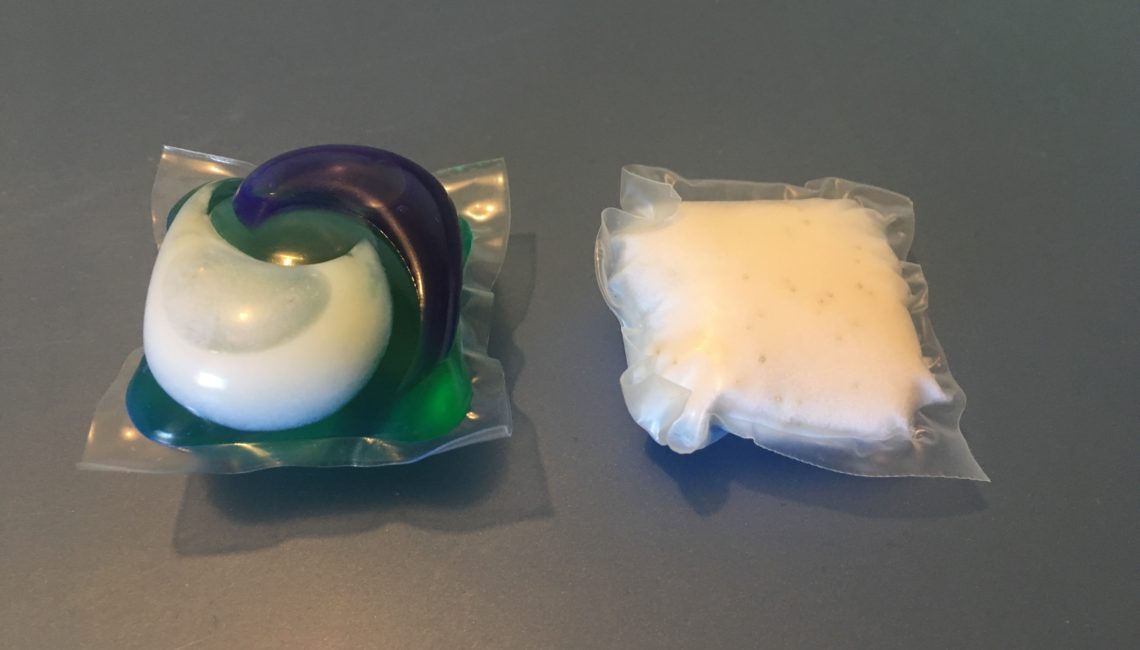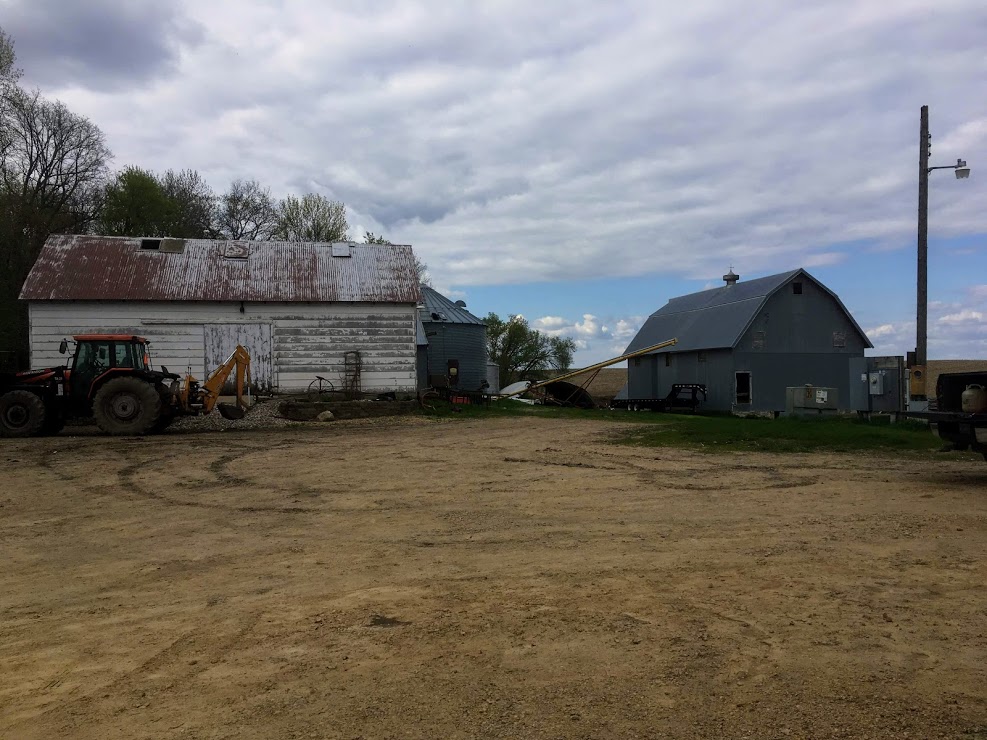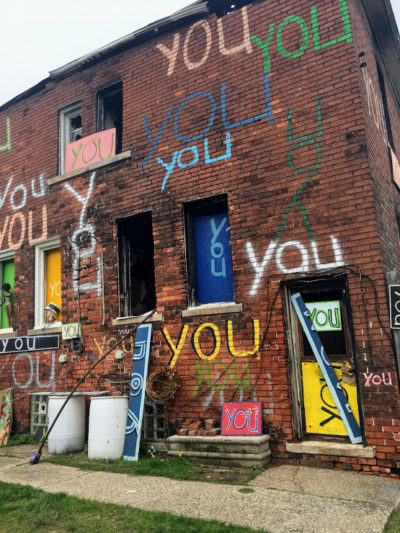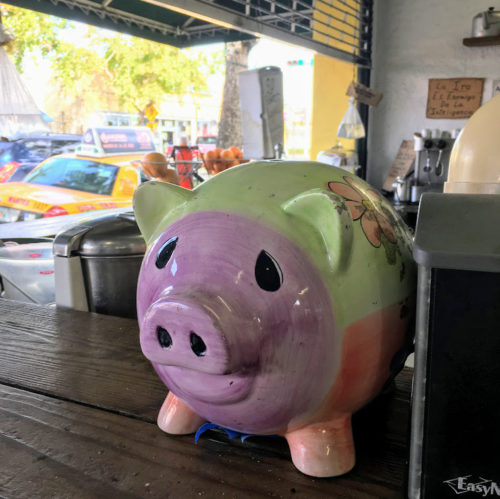For Slate, I wrote about CashCall vs. CFPB, a case where a subprime lending tycoon systematically broke laws of states like Virginia, New York, and North Carolina that make it illegal to charge sky-high interest rates. In most states with anti-usury laws, if you give out an illegal loan, the borrower isn’t obligated to pay any of the loan back: therefore, the Consumer Financial Protection Bureau argued that CashCall should have to refund all the interest it collected to consumers as restitution. CashCall argued it didn’t realize it had broken any laws (lol…), and judges seem to have found this argument persuasive.
-
-
The view from glass towers
For The New Republic, I wrote about how euphemism, jargon, and data science all help bankers at places like Capital One distance themselves from their customer’s pain. When I talk about “pain,” here, I mean a few different things. Consumers turn to credit cards because they can’t afford what they want or need: a condition that is intrinsically uncomfortable. In some cases, credit cards may help the consumer a little bit, in other cases, they make the financial instability Americans face even worse: in both cases, that suffering is ignored.
-
What it’s like to be a subprime debt collector
For TalkPoverty, a publication of the Center for American Progress, I interviewed subprime debt collectors about their difficult role as intermediaries between Americans in dire financial straights, and the financial institutions posting big profits.
-
How the lessons of Tide Pods could clean up the credit card industry
While popular, Tide Pods are staggeringly dangerous for young children and people with disabilities. Proctor and Gamble launched the Tide Pods in 2012. In 2011, 2,862 children were hospitalized because of laundry-detergent related injuries. In 2013, that number was triple: 9,004 children were driven to hospitals by laundry detergent. The problem isn’t that Tide Pods are uniquely toxic, or contain chemicals never used before. The problem is that they’re cute. They’re colorful. And they’re small. It’s the good things about Tide Pods that we have to change to make them safer. What Tide Pods teach us about consumer product safety is that it’s not always the “bad parts” of…
-
18 states later, some reflections
I just finished my road trip. The goal was to learn about the impact that credit cards and payday loans have in Americans’ lives. I’m now back in Washington, D.C. If you haven’t already read the previous blog posts, here were some of my reflections from Michigan and Missouri. Now that I’ve interviewed folks in 18 states for this project (well 17 states, plus the District of Columbia which obviously should be a state!), here are themes on my mind. “Impatience” isn’t the problem In Sacramento, I talked to Kathryn, a 63-year-old woman with $60,000 in credit card debt, which she’s whittled down from a peak of $80,000. Kathryn worked…
-
The space between want and need
I’m now on Day 13 on my road trip at my aunt and uncle’s farm in Blue Earth County, Minnesota — today is the first day of the planting season for corn. It’s getting a late start because of all the rain. My next stop will be in Iowa. If there’s one comment that has come up in most of my interviews with the people who wished they hadn’t borrowed money on a credit card, it’s that they used the card for things they realized they “didn’t really need.” That word “really” hints at the notion that there is actually a lot of ambiguous space in between want and need.…
-
Day 2: What is opportunity?
I’m now on Day 9 in the Twin Cities, by way of Milwaukee, Springfield, St. Louis, South Bend, Chicago, and Cleveland, but this story will talk about Day 2, Detroit. My first stop was the Heidelberg Project, an art installation where Tyree Guyton has used a city block to reflect on time, hope, and community. Guyton grew up on Heidelberg Street, and returned to it as an adult to find vacant lots and a neighborhood where poverty is deepening. Detroit is a city whose population is only 40% of what is was at its peak. There is no way you can drive around Detroit, at least the neighborhoods where I…
-
Department of Homeland Security officials want to check immigrants’ credit scores. That’s a terrible idea for reasons nobody’s talking about.
Since 1882, the United States has denied immigration visas to those who were deemed “unable to take care of himself or herself without becoming a public charge.” This principle has applied also to the renewal of visas of those already legally living and working in the United States, and in some cases, resulting in the deportation of people whose visas were otherwise still valid. For the past twenty years, while nearly all undocumented immigrants and many legally-documented immigrants have been ineligible for a range of public benefits, the only people labeled as “public charges” were those who got more than half of their income from cash-based public benefits. Trump’s Department…
